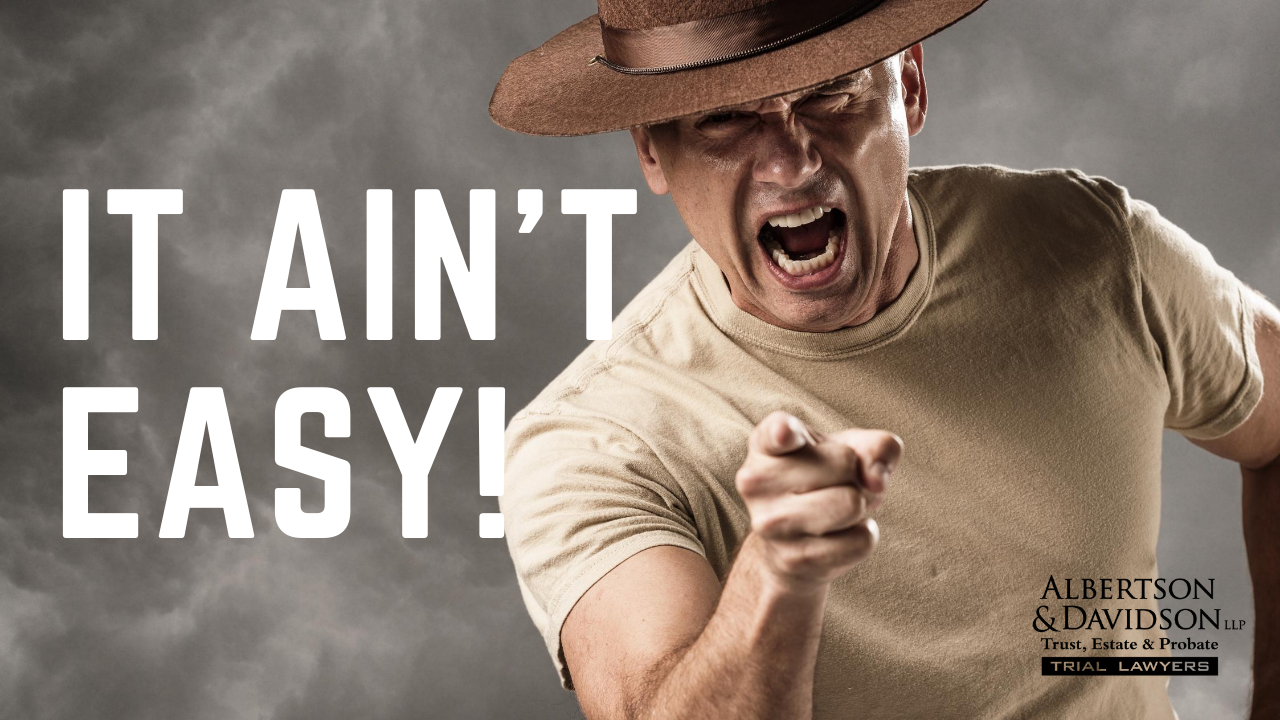
Three words: burden of proof. You have it and the other side does not. If you put on your case in a Trust contest and fail to meet your burden of proof, you lose. Losing is your default position. Winning is the default position of your opponent. They don’t have to put on a case. They just have to poke enough holes in your case to keep you from winning. If they do that, they win by default.
The Challenge of Admissible Evidence in Trust Contests
Sound unfair? In a way it is because the law presumes the written document is valid right out of the gate—no questions asked. To overturn a written, signed document, you have to bring admissible evidence that supports one of the legal grounds for overturning the document. Legal grounds means a claim such as lack of capacity or undue influence. These legal claims are the only way in which to invalidate a written, signed document.
To make matters harder, when you go to trial on a Trust contest lawsuit, you have to present admissible evidence. Admissible evidence—meaning evidence that is allowed to be presented in court—is different from facts. You may know someone who heard something favorable about your position in the case, but that may not be admissible. The California Evidence Code sets the ground rules for the type of evidence that is allowed to be used in court. And it is your job to go out and find that evidence.
Strategies for Success in Trust Contest Cases
Finding evidence can be difficult. When a bad actor unduly influences an elder into signing a document, they tend to act behind closed doors. Many times they are the only ones with direct knowledge of what occurred, and the bad actor is not going to testify against themselves. That means you have to locate other circumstantial evidence to help bolster your arguments come time of trial. You have to essentially peel back the layers of secrecy to hopefully find the truth—or get as close to the truth as possible. It all takes time and effort to put together as much evidence as you can find and then ensure it will be admitted under the rules of evidence.
Statistically speaking, in California only about thirty percent of Trust and Will contest cases succeed at trial. That means seventy percent of cases will fail if taken to trial. It is an uphill battle even under the best of circumstances.
Of course, a vast majority of cases will settle before trial. But even then, a good settlement requires that you make inroads against the bad actor’s case. You have to locate and find evidence to help bolster your case and only then will you be offered a favorable settlement.
This may sound depressing for those wanting to contest a Trust or Trust amendment, but rest assured it is not impossible. People are able to successfully set aside bad Trusts or bad Trust amendments—either by reaching an acceptable settlement or by prevailing at trial. It’s just going to be a lot harder than you think. Don’t go into a Trust contest case thinking you have a slam-dunk. You don’t. You have to knuckle down and do the work required to build your case and increase your odds of reaching a good result.
In order to maximize your chances of success, you’ll want to consider working with an experienced Trust and Will contest attorney. At Albertson & Davidson, we are dedicated to fighting for the best possible result. Listen to previous clients’ testimonials or contact us today for a free case evaluation!
